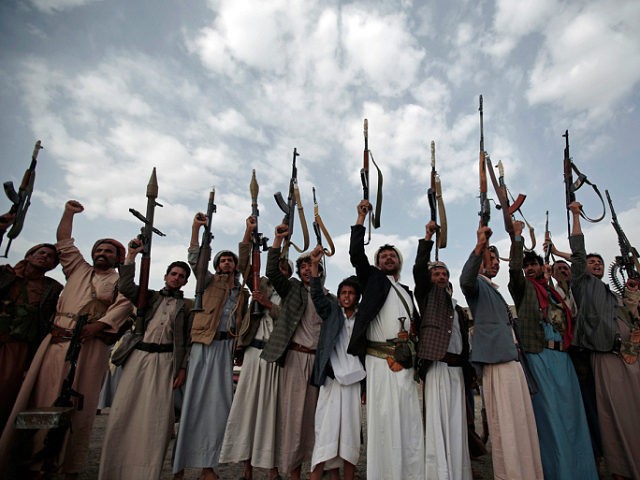The Sunni-Shia battle between Saudi Arabia and Iran continues as the Saudi Foreign Minister slams Iran for “destabilizing” the Middle East, even as advocacy groups called for the suspension of Saudi Arabia from the U.N. Human Rights Council over its military operation in Yemen.
“The entire world knows that Iran is working to destabilize our region,” Saudi Foreign Minister Adel al-Jubeir said during a Paris press conference on Tuesday. “Iran must respect principles of good neighborliness if it wishes to normalize ties.”
Jubeir also hammered Iran’s Shiite ally in Lebanon, Hezbollah, for “stalling any efforts to resolve Lebanon’s presidential vacuum.” As Al-Arabiya notes, Lebanon has done without a president for two years.
Furthermore, Jubeir reiterated Saudi Arabia’s demand that Syrian president Bashar Assad step down, while Assad’s patrons in Iran are equally determined to keep him in power.
Meanwhile, Iran’s PressTV reported that Amnesty International and Human Rights Watch have called on the United Nations General Assembly to suspend Saudi Arabia from the Human Rights Council, due to its military operation in Yemen — another proxy battle with Iran, which is behind the insurgent Houthi tribesmen that overthrew the Yemeni government.
“Saudi Arabia has amassed an appalling record of violations in Yemen while a Human Rights Council member,” declared Philippe Bolopion of Human Rights Watch.
“About 10,000 people have been killed in the Saudi airstrikes and Riyadh’s subsequent ground operation against its impoverished southern neighbor,” PressTV reports, noting that Human Rights Watch and Amnesty International claim there have been 69 documented Saudi airstrikes against illegal Yemeni targets, such as civilian homes, hospitals, schools, and mosques.
“Earlier this month, the UN briefly added the Saudi military coalition in Yemen to an annual blacklist of states and armed groups that openly flout the rights of children. The world body blamed the military coalition for 60 percent of child deaths and injuries in the conflict in Yemen last year,” PressTV reports. “UN Secretary General Ban Ki-moon, however, gave in to what he described as unacceptable pressure from Riyadh and removed the military coalition from the blacklist pending a joint review.”
Bloomberg News reports that the Iran-Saudi Arabia conflict has even made its way to Japan, where Japan’s Showa Shell refining company, which is about 15 percent owned by the Saudi national oil company Aramco, was to be part of a merger plan until objections were raised by another Japanese company, Idemitsu Kosan, which has commercial ties to Iran.
“The turn to more politicized decision-making shows how the lifting of nuclear sanctions on Iran earlier this year is shaking up Asia’s energy industry,” Bloomberg News observes, explaining that Japan is so hungry for petroleum that it can’t help getting swept into the standoff between the Saudis and Iranians.
Another source of vexation for the Saudis was discussed on Thursday at the Wall Street Journal, which notes that Saudi Arabia’s Sunni allies Egypt and Turkey have grown increasingly hostile towards each other, and neither of them agrees with the Saudis’ assessment of Iran as the great regional threat.
As the Journal explains, the Islamist government of Recep Tayyip Erdogan in Turkey is still livid at Egypt’s Abdel Fattah al- Sisi for overthrowing the Muslim Brotherhood. The Turks haven’t even been willing to officially recognize Sisi’s government as legitimate.
For its part, Egypt is suspicious of growing Saudi support for the Muslim Brotherhood under the new King Salman. “He and his son, Defense Minister Mohammed bin Salman, rapidly moved to accommodate Muslim Brotherhood affiliates in both Syria and Yemen, much to Mr. Sisi’s dismay and Mr. Erdogan’s delight,” the Journal writes.

COMMENTS
Please let us know if you're having issues with commenting.